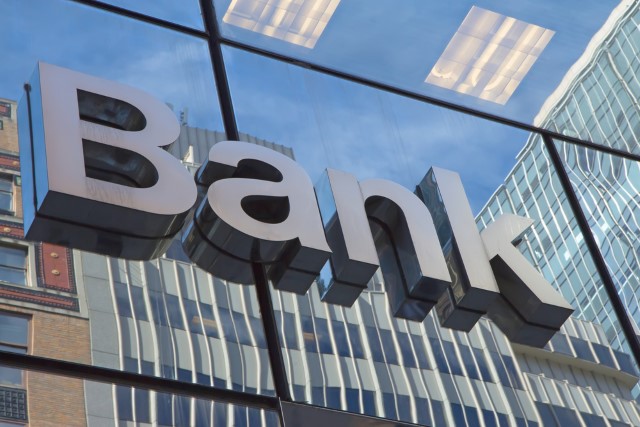
Banking apps targeted by multiple malware families
New research from mobile security platform Zimperium has uncovered 29 malware families targeting 1,800 banking applications across 61 countries in the last year.
US banking institutions remain by far the most targeted by financially motivated threat actors. There were 109 US banks targeted by banking malware in 2023, compared to the next most targeted countries which were the UK (48) and Italy (44). The report also noted that trojans are evolving beyond simple banking apps to target cryptocurrency, social media, and messaging apps.

Why open banking holds the key to customer centricity
The proliferation of fintech platforms has prompted consumers to demand more from their banks. Historically, legacy industry resistance to securely sharing customer data with third parties has deprived banks of opportunities to engage customers and foster longer-term retention more deeply. Many incumbent banks felt an open banking structure threatened their business models. However, as banks shift their mindset and embrace open banking, it’s evident that the 'mainstreaming' of an open banking infrastructure benefits both banks and consumers through a larger marketplace of product options.
Consumers can use open banking by consenting to share their data with other providers securely and receive a more comprehensive range of product offerings and more personalized and efficient services -- all in one place.

Why bad bots and open banking are creating opportunities for cybercriminals [Q&A]
We all know that bad bots are, well… Bad. But open banking is supposed to be good, giving consumers more control over their finances. Combine open banking and bad bots though and you have opened up a world of new threats to banks, customers, and their data.
We spoke to Alan Ryan, AVP for UK and Ireland at Imperva, about how open banking has created new opportunities for cybercriminals, and why the traditional siloed approach to security needs re-appraising.

Hybrid working can reduce consumer trust in organizations
New research from audio visual solutions and services provider Kinly, shows that 27 percent of AV professionals believe that customer trust in their organization has been weakened by remote work.
The research surveyed 150 UK-based AV professionals working across 'high trust' industries like banking, finance, healthcare, energy, and the public sector, and reveals that communication via open Wi-Fi networks (89 percent) is the top security concern with hybrid work.

Open source supply chain attacks specifically target banking
Researchers at Checkmarx have detected several open-source software supply chain attacks that specifically target the banking sector.
These attacks use advanced techniques, including targeting specific components in web assets of the victim bank by attaching malicious functionalities to them. The attackers employed deceptive tactics such as creating fake LinkedIn profiles to appear credible and customized command and control centers for each target, exploiting legitimate services for illicit activities.

60 percent of consumers prefer a fintech app to an accountant
Fintech apps have simplified financial management to the point where 60 percent of people will now seek advice from personal finance tools before reaching out to financial professionals.
A new survey from Capterra makes gloomy reading for accountants as it finds 64 percent of fintech users feel that these tools have significantly reduced their reliance on financial advisors.

The new challenger bank ethos: Why sustainability is fueling the next wave of disruption
If you were to take their marketing at face value, you’d assume that big banks were leading the finance sector’s charge regarding sustainability. And while they undoubtedly play an essential role, especially when financing major renewable energy projects and the like, the biggest disruption comes from challenger banks.
Increasingly, popular challenger banks such as Monzo and Starling, for example, are marketing themselves as more sustainable, capitalizing on a growing desire for banks to prioritize the environment. In fact, a recent report found that 67 percent of customers want their bank to be more sustainable.

Neobanks are on the rise: Can legacy banks keep pace?
Neobanks have shaken up the banking status quo since the introduction of PSD1 and PSD2, tempting customers in with user-friendly interfaces and streamlined processes. Legacy banks have struggled to keep up with the pace of innovation in the sector, and as a result, the industry is littered with rushed digital offerings that exacerbate the feeling that neobanks are pulling ahead in the digital transformation race.
In this day and age, having a low-quality digital banking platform is enough to turn customers away in favor of the digitally proficient neobanks. Customer loyalty doesn’t hold as fast as it once did, and customers are far more aware of the alternative services available to them at challenger digital banks. The traditional incumbents can’t continue to hope that their history and experience will win out as customers continue to experience low-quality customer service and deficient digital banking services.

Financial services businesses face critical data security gap
New survey findings from Lookout show that 70 percent of IT leaders in the financial services sector report a significant increase in data breaches compared to previous years.
Nearly half of organizations (47 percent) are struggling with the heightened difficulty of detecting and mitigating threats, while about a fifth (18 percent) face a significant lack of control over their applications and data.

Could advances in technology help banks increase their ESG potential?
Big banks once had almost unmatched dominance over the global financial sector. It allowed them to build glittering skyscrapers as their headquarters and helped transform London’s Canary Wharf from disused docks into what is probably Europe’s preeminent financial hub. In recent years, however, that dominance has come under threat from challenger and neo-banks, as well as from innovative fintech startups.
In fact, research released in 2022 shows that as many as 44 percent of UK business banking customers have already switched from a traditional bank to an online one. Almost two-thirds (65 percent) made the switch because they thought the online bank offered a better product. At the same time, the collapse of Silicon Valley Bank and the forced takeover of Credit Suisse by UBS has players across the sector scrabbling to avoid a global banking crisis.

Signing up for an Apple Savings Account was surprisingly bad
Announced last year in partnership with Goldman Sachs, the much-anticipated Apple Savings Account finally launched earlier today. Despite the long delay between announcing and launching the bank account, signing up for it was a surprisingly bad experience,
Firstly, it requires you to own an iPhone (on iOS 16.4 or higher) and be in the USA. I luckily meet this criteria, but understandably, Apple fans in other places would like to take advantage of the impressive APY (currently 4.15%). Of course, if and when the account launches in other countries, the rate is likely to vary based on location -- the percentage is unlikely to be the same regardless of country.

How artificial intelligence is transforming banking [Q&A]
Banking is a key industry, playing a major role in the economy, historically though it's been one that's slow to adapt to technological advances.
That's starting to change though, partly down to the arrival of more agile fintech companies. We spoke to co-founder of Iterate.ai, Brian Sathianathan, to find out more about how AI and machine learning can help transform the banking sector.

Preventing bank fraud: The role of antifraud technology and human behavior
The requirements and standards for information security are continuously being enhanced and revised, driven by various external factors such as the COVID-19 pandemic and the rising expertise of cyber attackers. As a result of this cyber arms race, novel methods and vectors of attacks are emerging. In addition, an increasing number of people in the world are utilizing mobile devices and other remote work means.
This poses additional security challenges. Implementing antifraud systems in financial institutions can considerably mitigate the impact of both traditional and new types of fraudulent schemes.

How can SaaS give banks a competitive edge over BaaS users? Anyone? Anyone?
Core banking technology moves pretty fast. If you don’t stop and look around once in a while, you could miss out…
The reduced cost of fintech, and increased functionality of cloud-based "as a service" models can reduce the number of applications a bank is running by 30 to 40 percent, and the cost of ownership by 15 to 20 percent, when compared to traditional financial services IT infrastructure.

Open banking remains a closed book for most consumers
Open banking first began to roll out in 2018, following the introduction of the PSD2 legislation in the UK, but five years on new research finds that most consumers still don't understand what it is, and the vast majority don't believe that it's safe.
The study from NTT DATA shows 58 percent of UK consumers still don't understand what open banking is, while just 16 percent believe that it's completely safe.
